competency based
While it’s ever so handy to have a guide to interviews like this, quite often you’ll be invited to an interview that’s a little more complex – particularly at management level.
Competency Based, or Behavioural Interviews, are used to enable you to show how you’d demonstrate certain behaviours and skills in your industry (and theirs!) by answering questions about how you’ve reacted to and dealt with previous situations. Employers use this method of interviewing, working on the assumption that by looking at past experience, they can predict your future behaviour – and how well you’d fit in with their own industry methodologies.
It’s all about examples.
You’ll be asked to provide examples of a situation or task that led you to take a certain course of action in your industry. Probing questions will then be used to determine the course of action you took and what changes were created by those actions, as well as the effects of those actions on others. Remember that the interviewer wants to know what you delivered and achieved - so it’s a good idea to avoid over-using examples of ‘we’.
You’re a STAR!
To help to keep your answers structured, it’s best to use the STAR model, which will allow you to structure your answer in a logical and concise manner.
Situation– Describe the situation/problem you were faced with – try to keep your examples recent!
Task– What did you have to do?
Action– What action did you take? Why? Were there any challenges/obstacles and how did you overcome them?
Results– Highlight the outcome, with a focus on results – keep it positive!
Preparing for a competency-based interview
The best way to identify what competencies they’re going to ask you about is to review the job description in comparison with your CV. You’ve gotten this far on the strength of your CV, which has already shown off the basics of your management experience, so there’ll be certain things in there that have caught their eye. Try to look at your experience from their perspective and work out what it was about you that appealed to them for this role.
Try to think of specific examples of when you have evidenced those behaviours - but don’t fall into the trap of preparing specific answers prior to your interview as you’re likely to end up providing answers that do not fully answer the question.
Examples of Competency Questions
It’s worth having a quick run through a few of these questions with a friend or colleague before your interview, and if you’re struggling with any of them, ask your Consultant. After all, that’s what we’re here for! Not all of them will be relevant to the role you’re interviewing for, but we wouldn’t want you to be anything less than fully prepared – so have a run through these and see how you get on.
Communication
This competency is looking for your ability to communicate effectively and to influence others to act on or commit support to one’s own goals or objectives. Often, they’re looking to establish that you understand the need to adapt your communication methods depending on the situation and individuals that you are facing.
Terminology tip: “communication methods” can include 1-2-1 discussions (formal and informal), group presentations, telephone, email, and so on. Different “audiences” may include your peers, subordinates, senior management, customers, and suppliers.
Example Questions:
- Can you please give a specific example of when you have had to influence a colleague to you way of thinking?
- Tell me about a particularly difficult issue you had to communicate.
Interpersonal and Team Skills
The desire to build and maintain relationships in and beyond the workplace is absolutely critical, especially if you’re in a customer contact business, where cultural fit is everything! Many businesses as such, function on the basis of project teams. If you are highly collaborative and co-operative, you’re likely to thrive in this type of environment – and it’s definitely worth trying to get this across in your interview.
Example Questions:
- What skills and personal qualities have you contributed to the teams you have been part of?
- Tell me about the most difficult person you have worked with.
Influencing or Persuading Others
You may have strong verbal skills – but there’s a difference between being able to talk, and being able to persuade. Can you influence another person to change their thinking or take some action? At customer contact management level - have you posses the skills to persuade and involve rather than coerce and punish? Are you ethical in your dealings with people?
Example Questions:
- Tell me about a time when you were able to change someone’s viewpoint significantly?
- Tell me about a time when you were asked to do something that you disagreed with?
Planning and Organising
With this, they’re looking to assess if and how you plan activities and projects. They want to know how your organisational management skills have helped to improve your businesses’s performance, and how your ability to plan ahead has helped you, your colleagues, and your agents.
Example Questions:
- Describe a time when you’ve had to plan a project.
- How would you approach ensuring that you delivered results in your role?
- It’s a busy day with conflicting priorities and deadlines - what do you do?
Problem Solving and Decision Making
How do you come to a decision? Are you able to make independent decisions, or do you rely too heavily on others? This is definitely one of those ‘fine line’ areas, where it’s important to show that you can balance being an independent thinker with understanding the needs of your customer contact business.
Example Questions:
- Tell me about a difficult decision that you have made.
- Tell me about an unpopular decision you have made.
Customer Focus
If you believe in the importance of customer focus, this is your chance to show this off. You need to show that you’ve listened to and understood the needs of external and internal customers, meeting and exceeding customer needs to ensure satisfaction.
Example Question:
- Can you give us an example of when you have dealt with an upset or angry customer in the past?
Drive for Results
Quite often, your interviewers will use competency based interviewing to assess your personal motivation and how you approach challenges. This is a good opportunity to talk about a ‘negative’ situation which you managed to turn around into positive results, or a time when you achieved the ‘impossible’ – it’s your opportunity to really showcase your skills!
Example Questions:
- What achievement are you most proud of?
- Give me an example of a time when you have had to achieve a specific result.
- What opportunities have you identified and used to achieve success?
- Tell me about a time when you have ‘made things happen’ for yourself/your team/your call centre?
This type of interview is designed around the key competencies that the company feels are integral to the role that you are being considered for. It’s not designed to explore your career history in detail – you’re not just working through ‘the story so far’ with your CV. Rather, they’re trying to work out how your mind works, and how you act in more practical situations.
The best advice we can give you for competency based interviews is to relax. Remember that in all interviews, they want you to be an amazing candidate just as much as you do! They’re giving you the opportunity to tell them why you’re even better than you look on paper, providing examples of the great things you’ve done that aren’t necessarily included on your CV.
We’ve said it before, and we’ll say it again – we’ve sent your CV to our client because we think you’ve got what it takes for their role. This is the best opportunity you’re likely to get to tell them exactly why you’re perfect for the job – so make the most of it!



